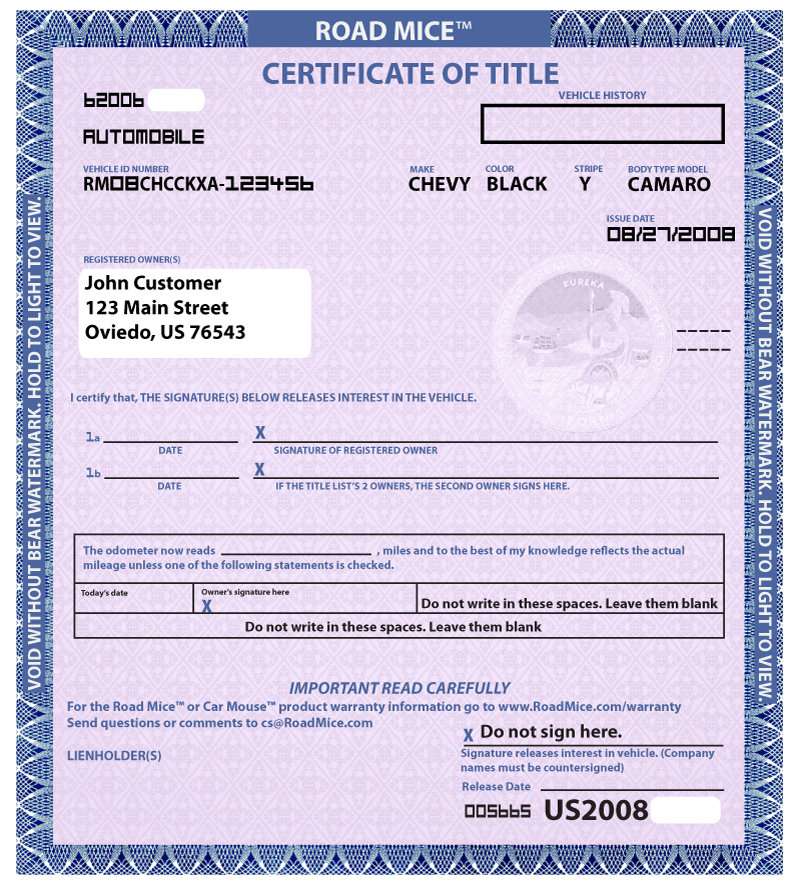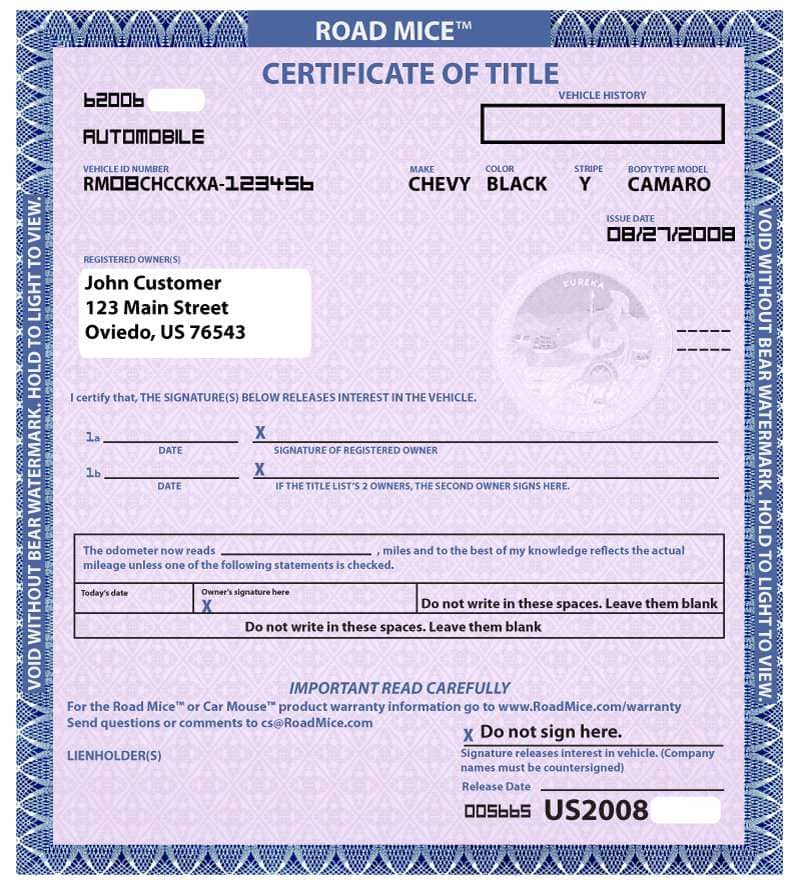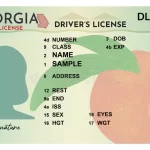Electronic Vehicle Title: A Comprehensive Guide to the Future of Car Ownership

For decades, the physical paper title has been the cornerstone of vehicle ownership, a tangible representation of your right to a car, truck, or motorcycle. But the world is rapidly digitizing, and the automotive industry is no exception. Enter the Electronic Vehicle Title (EVT), a digital alternative that promises to streamline processes, enhance security, and ultimately revolutionize the way we buy, sell, and manage our vehicles.
This comprehensive guide dives deep into the world of electronic vehicle titles, exploring what they are, how they work, the benefits they offer, the challenges they face, and what the future holds for this transformative technology.
What is an Electronic Vehicle Title (EVT)?
At its core, an EVT is a digital record of vehicle ownership, stored securely in a state’s motor vehicle database rather than printed on a physical document. Think of it as the digital equivalent of your paper title, containing all the essential information about your vehicle, including:
- Vehicle Identification Number (VIN): The unique identifier for your specific vehicle.
- Year, Make, and Model: The vehicle’s identifying characteristics.
- Owner Information: The name and address of the registered owner(s).
- Lien Information: Details of any outstanding loans or liens against the vehicle.
- Title History: A record of all previous owners and title transfers.
Instead of holding a physical document, you simply have a digital record associated with your vehicle in the state’s database. This record is accessible to authorized parties, such as vehicle owners, lenders, and motor vehicle departments.
How Does the Electronic Vehicle Title System Work?
The EVT system relies on a secure and interconnected network to manage and transfer ownership information. Here’s a simplified breakdown of the process:
- Title Creation: When a new vehicle is purchased or transferred in a state that supports EVTs, the motor vehicle department creates an electronic record in its database.
- Digital Storage: The EVT is securely stored and managed by the state’s Department of Motor Vehicles (DMV) or equivalent agency. States employ robust cybersecurity measures to protect this sensitive data.
- Lien Recording: If a vehicle is financed, the lender electronically records a lien against the EVT, indicating their financial interest in the vehicle.
- Ownership Transfer: When the vehicle is sold, the seller initiates a digital transfer of ownership through the state’s EVT system. This typically involves confirming their identity and providing the buyer’s information.
- Lien Release: Once the loan is paid off, the lender electronically releases the lien on the EVT, signifying that the vehicle is free of encumbrances.
- Title Printing (Optional): In many states, vehicle owners can request a paper title at any time, which the DMV will print based on the information in the electronic record. This paper title serves as a snapshot of the EVT at the time of printing.
- Out-of-State Transactions: When a vehicle with an EVT is sold to someone in a state that doesn’t support electronic titling, the originating state typically prints a paper title to facilitate the transfer in the new state.
Benefits of Electronic Vehicle Titles:
The shift to electronic vehicle titles offers a multitude of advantages for vehicle owners, lenders, and government agencies:
- Enhanced Security: EVTs are significantly more secure than paper titles. They are virtually impossible to counterfeit, forge, or alter, reducing the risk of title fraud and vehicle theft. The centralized, digitally secured database minimizes the risk of loss or damage associated with physical documents.
- Streamlined Transactions: EVTs simplify and expedite vehicle sales and transfers. The digital process eliminates the need for physical paperwork, reducing processing times and administrative costs. Online portals allow buyers and sellers to complete transactions from the comfort of their own homes, saving time and effort.
- Faster Lien Processing: Lenders can quickly and easily record and release liens electronically, improving efficiency and reducing the risk of errors. This faster processing benefits both lenders and borrowers, as it allows for quicker loan approvals and vehicle releases.
- Reduced Fraud: The digital nature of EVTs makes it easier to detect and prevent fraudulent activities, such as title washing (altering a vehicle’s history to hide damage or salvage status).
- Cost Savings: EVTs can reduce administrative costs for both government agencies and businesses. The elimination of paper, printing, and storage saves money in the long run.
- Environmental Benefits: By reducing the need for paper, EVTs contribute to environmental sustainability by conserving natural resources and reducing waste.
- Improved Accuracy: The digital system reduces the risk of human error, ensuring that vehicle ownership information is accurate and up-to-date.
- Increased Transparency: EVTs provide a clear and easily accessible record of a vehicle’s ownership history, promoting transparency and trust in the used car market.
- Convenience: Owners can access their title information online anytime, anywhere, making it easier to manage their vehicle ownership.
Challenges and Considerations:
While the benefits of EVTs are compelling, some challenges and considerations need to be addressed:
- Implementation Costs: Implementing an EVT system requires significant investment in technology infrastructure, software development, and staff training.
- Interoperability Issues: The lack of standardization across states can create challenges when transferring vehicles between states with different EVT systems.
- Digital Literacy: Some individuals may lack the necessary digital literacy to navigate the EVT system, potentially creating barriers to access.
- Privacy Concerns: The storage of sensitive information in a digital database raises concerns about data security and privacy. Robust cybersecurity measures and data protection policies are essential to mitigate these risks.
- System Downtime: Like any digital system, EVTs are susceptible to downtime due to technical issues or maintenance. Procedures need to be in place to handle transactions during these periods.
- Resistance to Change: Overcoming resistance to change from individuals and organizations accustomed to paper titles can be a challenge.
- Accessibility for Underserved Communities: Ensuring that EVT systems are accessible to individuals in underserved communities, including those with limited internet access, is crucial.
- Legal Framework: Clear legal frameworks are needed to define the legal status of EVTs and address issues such as electronic signatures and digital notarization.
The Future of Electronic Vehicle Titles:
The future of EVTs is bright, with ongoing developments and innovations pushing the technology forward:
- Increased Adoption: As more states recognize the benefits of EVTs, adoption rates are expected to increase significantly in the coming years.
- Standardization Efforts: Efforts are underway to standardize EVT systems across states, facilitating seamless vehicle transfers and improving interoperability. Organizations like the American Association of Motor Vehicle Administrators (AAMVA) are playing a key role in this process.
- Blockchain Technology: Blockchain technology could further enhance the security and transparency of EVT systems. Blockchain’s decentralized and immutable nature makes it ideal for managing sensitive data and ensuring the integrity of vehicle ownership records.
- Integration with Other Systems: EVTs are likely to become increasingly integrated with other automotive-related systems, such as vehicle registration, insurance, and maintenance records.
- Mobile Accessibility: Mobile apps and online portals will provide vehicle owners with convenient access to their title information and allow them to manage their vehicles from their smartphones or tablets.
- Smart Contracts: Smart contracts, self-executing agreements written into code, could automate various aspects of the vehicle ownership process, such as title transfers and lien releases.
- Improved Data Analytics: EVT data can be used to gain insights into trends in the automotive market, identify potential fraud risks, and improve transportation planning.
How to Navigate the Electronic Vehicle Title System in Your State:
If you live in a state that supports EVTs, here are some tips for navigating the system:
- Check with Your State’s DMV: Visit your state’s DMV website to learn about its EVT policies and procedures.
- Understand Your Rights: Familiarize yourself with your rights and responsibilities as a vehicle owner in the context of EVTs.
- Keep Your Information Updated: Ensure that your contact information is up-to-date with the DMV to receive important notifications about your vehicle title.
- Access Your Title Information Online: Use the online portal provided by your state’s DMV to access your vehicle title information and manage your vehicle.
- Request a Paper Title (If Needed): If you need a paper title for any reason, such as selling the vehicle in a state that doesn’t support EVTs, you can typically request one from the DMV.
- Be Aware of Potential Scams: Be cautious of online scams and phishing attempts related to EVTs. Always verify the authenticity of any communication claiming to be from the DMV.
Conclusion:
Electronic vehicle titles represent a significant step forward in the modernization of vehicle ownership. By embracing digital technology, we can create a more secure, efficient, and transparent system that benefits vehicle owners, lenders, and government agencies alike. While challenges remain, the potential advantages of EVTs are undeniable. As adoption rates continue to rise and technology evolves, electronic vehicle titles are poised to become the norm, transforming the way we buy, sell, and manage our vehicles for generations to come. This comprehensive guide has provided you with the knowledge to understand and navigate this evolving landscape, empowering you to embrace the future of car ownership.















